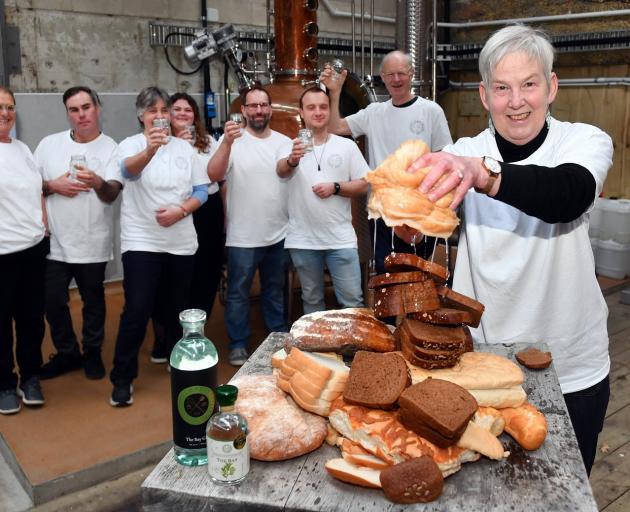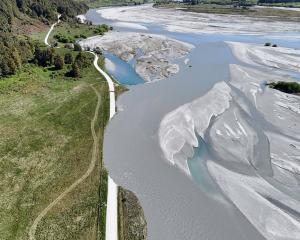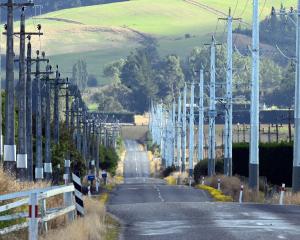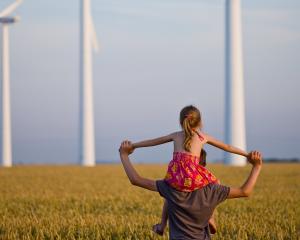
I recall the big floods in April 2006 in Ōtepoti Dunedin, when people came together from all walks of life to help each other and assist those affected. I remember rowing with a local farmer across flooded paddocks in Waitati to rescue sheep from drowning. Crises provide opportunities to focus on the things that matter, to muck in and get things done.
There have been many more flood events since, including the 2015 floods that hit South Dunedin particularly hard and cost an estimated $138 million. I’ve visited many whānau in the area who were affected by flooding then and are bound to be hurt by flooding again in the future. South Dunedin is one of the most densely inhabited urban areas in Aotearoa, and prone to sea-level rise and flooding to an extent that we cannot simply ignore.

From seeking to open coal mines, or re-starting oil and gas exploration, to killing off incentives for zero emission transport options, enabling more cars with high tailpipe carbon pollution and funding more roads, this government demonstrates dangerous climate change denial. Its policies are pouring fuel on the climate fire that is felt first and hardest by those at the front line of climate impacts: communities such as South Dunedin.
There are many reasons to feel frustrated by this lack of leadership, but I would caution against despair, because what I see and hear around the motu are examples of communities coming together to respond to this crisis of climate denialism. A crisis is an opportunity if we are willing to engage, and finally I see reasons for some optimism.
Firstly, around the country people are becoming much more politically engaged. With an eye on local body elections in 2025 and the next general election, people are getting more involved in community groups. Increased participation in democracy has to be a good thing.
Secondly, local councils are stepping up. For example, in its written submission on the government’s fast-track legislation, the Dunedin City Council sought to make any project that would contribute to climate change or get in the way of meeting our national climate targets ineligible for consent. Auckland’s council also opposes the fast-track legislation and recently voted against higher road speed limits in opposition to the government.
Thirdly, industry, NGOs, community groups and Māori organisations are all working extra hard to protect communities as the government’s austerity budget cuts programmes and support for basic services. Canterbury network company Orion has partnered with NGOs Ara Ake and the Community Energy Network to offer a "Community Energy Activator", a 13-week programme to help accelerate energy innovation and build community resilience.
Locally in Ōtepoti Dunedin, Aukaha, a kaupapa Māori organisation has been hard at work helping homeowners achieve energy wellbeing and lower household emissions through their various "Better Homes" suite of programmes.
Finally, we see many in the business community committing to reducing emissions and more efficient use of resources. Inspiring examples include Raglan Food Co, who use Planetary Facts labelling to show consumers the environmental impact of their product. Locally, Dunedin Craft Distillers — with their range of specialty gins and vodkas, small-batch brewed and distilled from old bread — are using heat recovery systems in the distillation process to build in further circularity. Another innovator is Powerhouse Wind, with their PowerCrate, utilising local manufacturing skills to commercialise an all-in-one off-grid or edge-of-grid solar and wind generation system.
There’s so much innovation and passion displayed by those working for a sustainable future.
Individually, they may be small steps, but many small steps taken by lots of people acting together can have an exponential impact. It’s about not shying away from the challenge at hand. The climate crisis and its political adjunct present us with our biggest challenge yet.
Let’s keep working as communities to encourage the government to also get stuck in, and unlock the kind of homegrown solutions that help us in times of crisis.
Scott Willis is an Ōtepoti Dunedin-based Green Party List MP. Each week in this column, writers address issues of sustainability.













